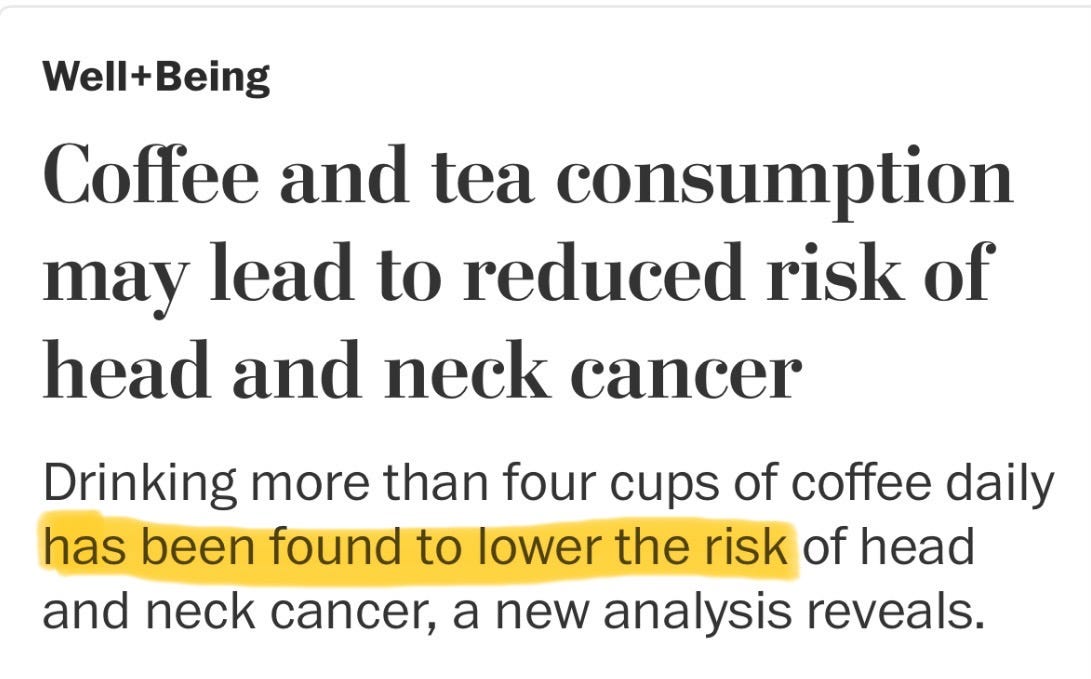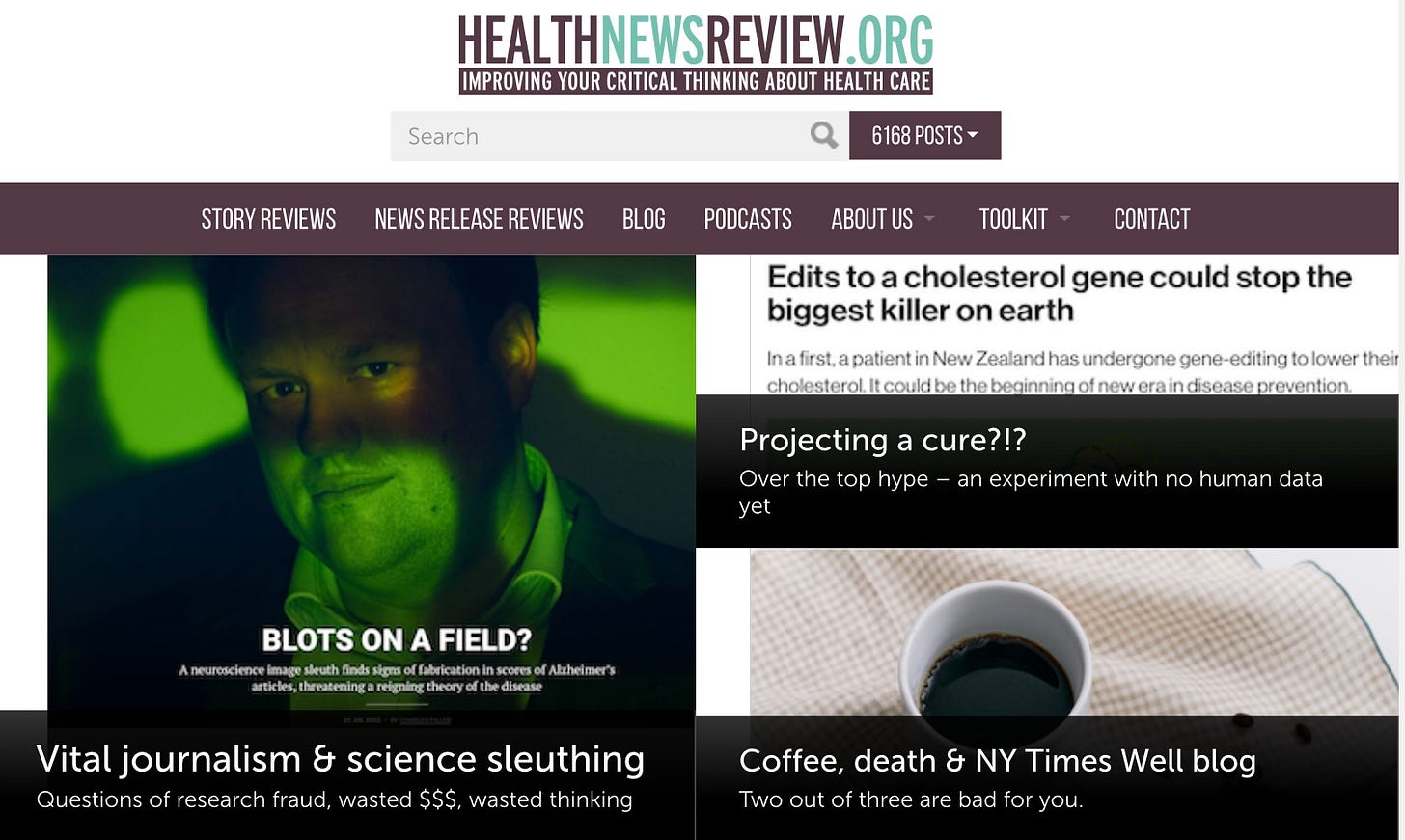No, Washington Post, that’s NOT what the study found
Coffee - one of the poster boys of observational research miscommunication
This is what the Washington Post online headline trumpeted today:
In case you would miss it, I have given you the answer in yellow highlight.
This was an observational study. To be clear, such studies are not unimportant. But they cannot prove cause-and-effect. “Has been found to lower the risk” is a causal statement. Lowering risk is a statement that coffee or tea use caused a lower risk. So this is wrong. Even my most generous critique would be to say that this is needlessly unclear and misleading.
And here’s an old tip: anytime you read “may lead to reduced risk,” feel free to substitute “may not lead to reduced risk” - which would be equally justified. It’s just that you’ll never see that in the headline, which is meant to lure you in.
Before I go any further, let me offer my apologies to you:
If you followed our HealthNewsReview website from 2006-2022 and heard this reminder from us over and over and over. In fact, one of our very last home pages in late 2022 featured a critique of a New York Times Well blog piece that miscommunicated another study finding on coffee. See the image at lower right headlined, “Coffee, death & NY Times Well blog: Two out of three are bad for you.” In our daily tracking experience over 16 years the venerable NY Times was a frequent miscommunicator of observational research.
If you already read our Toolkit piece that provided right and wrong examples of language used to describe observational research. Click here or on the image below to see what we wrote, as captured by the wonderful Internet Archive Wayback Machine which is now the only way to see any of the work we did every day for 16 years.
If we never reached you with our constant reminders that statistical associations do not prove cause-and-effect. Our bad. We tried. A lot. Maybe more than on any other topic in biomedical research.
If you have always raised your hopes and expectations or fueled your fears by following news about observational research studies that pointed to the benefits (or harms) of coffee, tea, dark chocolate, blueberries, walnuts, alcohol and countless other food/drink items as reported from observational studies (often funded by these food industries). I’ve often called these food/drink items the poster children for observational research miscommunication. Nutrition studies, in general, provide a minefield of such problems. This paper in the Journal of the American Medical Association stated:
The emerging picture of nutritional epidemiology is difficult to reconcile with good scientific principles. The field needs radical reform.
This is not an isolated example from the scientific literature, which is stuffed with such criticism.
As I often write, the words matter. The words in headlines matter. Some readers don’t get beyond the headline. So they’re left with the wrong impression.
To its credit, the Washington Post piece went on - at the end - to provide a substantive section on study limitations. It included:
“Asking individuals to recall their coffee and tea intake could result in recall bias” - meaning that people may incorrectly estimate their intake, thereby having an inaccurate impact on the study.
Possibly imperfect accounting for confounding factors - meaning that the researchers may not have been able to adequately take into account other factors in peoples’ lives such as smoking, alcohol use, age and demographics.
It also ended with a strong reminder to readers that “drinking coffee and tea is not a preventive measure.”
But in between the erroneous headline and the appropriate caveats at the end there were 15 uses of these words: associated, association, link or linked. Many readers may have missed the important nuance that this research only showed a statistical association. But there was never a clear, overt, direct explanation that association does not necessarily mean causation.
And that’s why I’ve written about such messages so many times for so many years. It’s about getting it right. It’s about not misleading people. It’s about explaining things in a way that readers of all walks of life can understand.
When I still see stories like this, I’m glad I have this Substack to address the issue one more time (or more).









Gary’s coffee cup is back!!! Wish we didn’t need it but comforting nonetheless.
Repeat after Gary: “association is not causation.” Or, as I like to say “just another stupid epi study.”